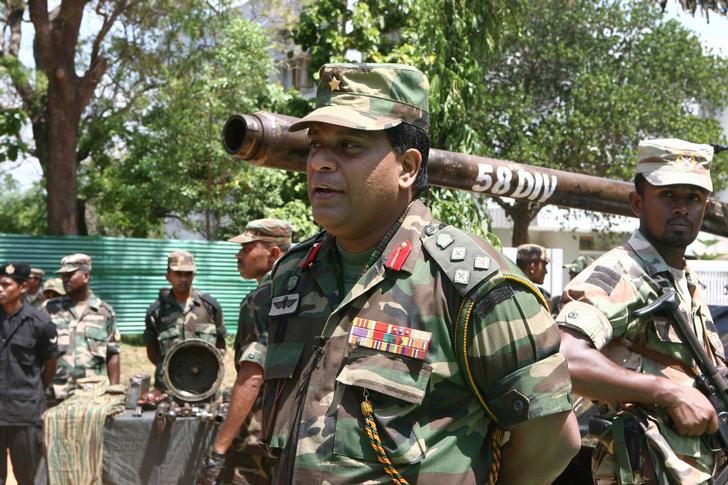Making submissions on behalf of the Government of Sri Lanka, Himalee Arunatilaka, Permanent Representative of Sri Lanka to the United Nations in Geneva told the Human Rights Committee that no factual or proven allegations of human rights violations existed against Major General Shavendra Silva and rejected accusations against Sri Lankan military officials as unsubstantiated.
One Committee Expert said Staff Sergeant Sunil Rathnayake, who was convicted of killing eight Tamil villagers in 2000, was released by presidential pardon in 2020. The overreach of executive power was of great concern and fostered impunity for perpetrators of grave offenses. What measures were in place to oversee presidential pardons? How would justice for victims of human rights violations be ensured? The promotion of several military officers to senior command positions despite serious allegations of involvement of troops under their command in gross violations of international human rights law was concerning. The State party had even devoted a section of its report justifying the appointment to Chief of Staff of Major General Shavendra Silva, the subject of numerous allegations of human rights violations.
Responding to the statement that presidential pardon given to Staff Sergeant Sunil Rathnayake, who was convicted of killing eight Tamil villagers in 2000 Sri Lanka ambassador said that Presidential pardons could be subject to judicial review and some cases were underway in this regard.
The Human Rights Committee concluded on 10th March its consideration of the sixth periodic report of Sri Lanka on how it implements the provisions of the International Covenant on Civil and Political Rights, with Committee Experts commending actions taken to resettle internally displaced persons, and raising issues concerning the effectiveness of constitutional reform and impunity for military officers who had allegedly committed or overseen human rights violations.
A Committee Expert noted progress made in settling internally displaced persons. They welcomed that 92 per cent of the private land held by the military had been released to legitimate civilian owners.
Another Expert raised the question that how would the State ensure that future constitutional amendments protected of the independence of the judiciary and of other independent human rights institutions?
On internally displaced persons, the government delegation said a special unit had been established. 2,324 internally displaced persons were currently housed in welfare centres and 13.3 acres of State land were allocated to those families. The President had appointed a committee to classify land as forest land. If security forces wanted to maintain land, a mechanism allowed them to lease it from the owners.
In concluding remarks, Ms. Arunatilaka said that since its sixth periodic report, many developments had taken place within Sri Lanka including on gender equality, reconciliation and the adopted 21st amendment to the Constitution. There were still constraints and issues that needed to be addressed, as in all countries, to ensure civil and political rights for all people in Sri Lanka. She reiterated the Government’s commitment to protecting the human rights for all the people of Sri Lanka.
Tania María Abdo Rocholl, Committee Chairperson, in concluding remarks, said the meetings were an important space to address issues including constitutional reform, accountability for serious human rights violations, the independence of the judiciary, internally displaced persons, national religious hatred, and the right to peaceful assembly, amongst others. The Committee sought better cooperation with the Government of Sri Lanka to better implement the Covenant.
The delegation of Sri Lanka was made up of representatives of the Ministry of Foreign Affairs, the Ministry of Defence, the Ministry of Women, The Ministry of Health, the Ministry of Public Security, the Department of Prisons, the Office on Missing Persons, the Office for Reparations, the Office for National Unity and Reconciliation, National Dangerous Drugs Control Board, Bureau of the Commissioner General of Rehabilitation; and the Permanent Mission of the Sri Lanka to the United Nations Office at Geneva.
With the inputs from a UN News Release.
